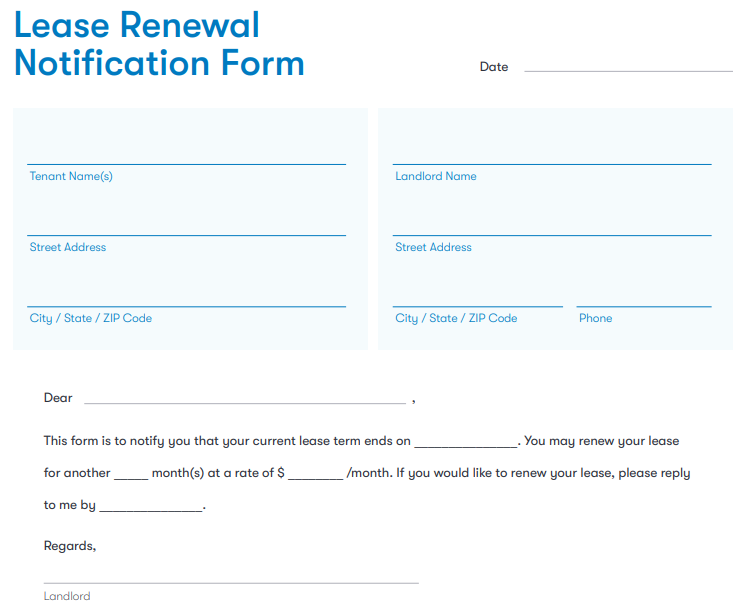Property condition assessment
Strategic Tips for Successful Lease Renewal Negotiations

Strategic Tips for Successful Lease Renewal Negotiations
Lease renewal negotiations can be a pivotal moment for both tenants and landlords. Approaching this process strategically is key to reaching favorable terms for all parties involved. Here are essential tips to navigate lease renewal negotiations effectively.
Understanding the Current Rental Market
Before entering into lease renewal negotiations, tenants should research and understand the current state of the rental market in their area. Knowledge of market trends, average rental rates, and vacancy rates empowers tenants to negotiate from an informed position. This understanding provides a benchmark for assessing the fairness of proposed terms.
1. Start Early and Communicate Promptly
Early communication is fundamental to successful lease renewal negotiations. Tenants should initiate discussions well in advance of the lease expiration date. This allows both parties ample time to consider terms, negotiate, and avoid the pressure of last-minute decisions. Open and prompt communication sets a positive tone for the negotiation process.
2. Evaluate Your Rental History
Tenants with a positive rental history, including on-time payments and adherence to lease terms, have a strong negotiating position. Highlighting a history of responsible tenancy can be a compelling argument for favorable lease renewal terms. Documenting this history provides tangible evidence of a tenant’s reliability.
3. Assess the Property’s Condition
Landlords are more likely to consider favorable terms for tenants who have maintained the property well. Conduct a thorough assessment of the property’s condition, addressing any necessary repairs or maintenance. Presenting a well-maintained property enhances a tenant’s credibility and strengthens their negotiating position.
4. Research Comparable Rentals
To support their negotiation stance, tenants should research comparable rentals in the area. If similar properties are leasing at lower rates or offering more favorable terms, tenants can use this information to negotiate for competitive terms. Knowledge of the local rental market dynamics is a powerful tool in negotiations.
5. Prioritize Key Lease Terms
Identify key lease terms that are particularly important to you as a tenant. Whether it’s the rental rate, lease duration, or specific property features, prioritizing these terms helps focus the negotiation on critical aspects. Flexibility on less crucial terms can be employed to secure favorable conditions for the most important ones.
6. Propose Incremental Changes
When presenting desired changes to the lease terms, proposing incremental adjustments can be more effective than radical shifts. Gradual changes may be more palatable for landlords, increasing the likelihood of agreement. Clear and reasoned proposals help landlords understand the tenant’s perspective.
7. Seek Professional Advice if Needed
For tenants facing complex lease renewal negotiations or dealing with unique circumstances, seeking professional advice can be beneficial. Consulting with a real estate attorney or tenant advocacy service provides valuable insights and ensures that tenants understand their rights and options during the negotiation process.
8. Negotiate Beyond the Rent
Lease renewal negotiations aren’t solely about the rental rate. Tenants can explore other aspects of the lease, such as maintenance responsibilities, pet policies, or lease termination conditions. Negotiating beyond the rent allows tenants to tailor the lease
Renewing a Lease: Strategies for Seamless Extension

Renewing a Lease: Strategies for Seamless Extension
Lease renewal is a significant milestone in the landlord-tenant relationship, offering an opportunity for continuity and mutual benefit. Whether you’re a tenant looking to extend your stay or a landlord aiming to retain a reliable occupant, the process of renewing a lease requires thoughtful consideration and strategic planning.
Assessing the Current Lease Terms
Before initiating the renewal process, both tenants and landlords should thoroughly review the existing lease agreement. Understanding the current terms, including rent amounts, lease duration, and any special conditions, provides a foundation for negotiating and updating the lease for the upcoming term.
Initiating Early Communication
Open and timely communication is key to a successful lease renewal. Landlords should initiate discussions with tenants well before the current lease expires, providing ample time for both parties to express their intentions and negotiate new terms if necessary. Early communication reduces uncertainty and allows for smoother planning.
Renewing a Lease Link: Renewing a lease
Negotiating Updated Terms
Lease renewal is an opportunity to revisit and potentially update the terms of the agreement. This may include adjusting the rent to reflect market changes, modifying lease duration, or incorporating new clauses. Both parties should approach negotiations with flexibility and a willingness to find mutually beneficial terms.
Conducting a Property Assessment
For landlords, the lease renewal process is an opportune time to assess the condition of the property. Conducting a thorough inspection helps identify any necessary repairs or maintenance issues that need addressing before extending the lease. Tenants can also use this time to communicate any concerns or repair requests.
Consideration of Rent Adjustments
Rent adjustments are a common aspect of lease renewals. Landlords may consider market trends, property improvements, or changes in operating costs when determining whether a rent increase is necessary. Tenants, on the other hand, should be prepared to discuss and negotiate such adjustments to reach a fair agreement.
Addressing Tenant Concerns
During lease renewal discussions, landlords should be attentive to any concerns or requests raised by tenants. Whether it’s a desire for specific property improvements, modifications to the lease terms, or addressing maintenance issues, a landlord’s responsiveness can positively influence a tenant’s decision to renew the lease.
Providing Incentives for Renewal
Landlords may consider offering incentives to encourage tenants to renew their leases. This could include a rent discount, upgrades to the property, or other perks. Incentives demonstrate appreciation for reliable tenants and can contribute to a positive and collaborative landlord-tenant relationship.
Renewal Documentation and Signatures
Once both parties have agreed on the renewed lease terms, it’s crucial to document these changes in a written lease renewal agreement. This document should outline the updated terms, including rent amounts, lease duration, and any other negotiated conditions. Signatures from both parties signify mutual agreement and commitment.
Communicating the Renewal Decision
Whether the decision is to renew or not, clear communication is essential. Landlords should promptly inform tenants of their decision, providing any necessary documentation related to the renewed lease. Similarly, tenants should communicate their intentions
